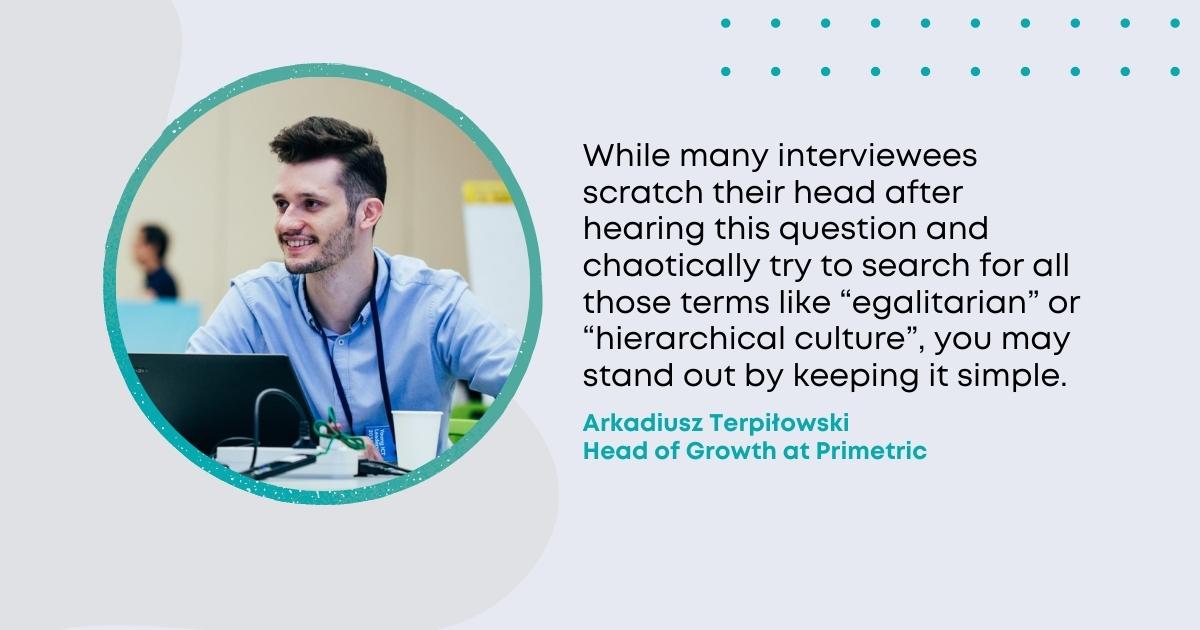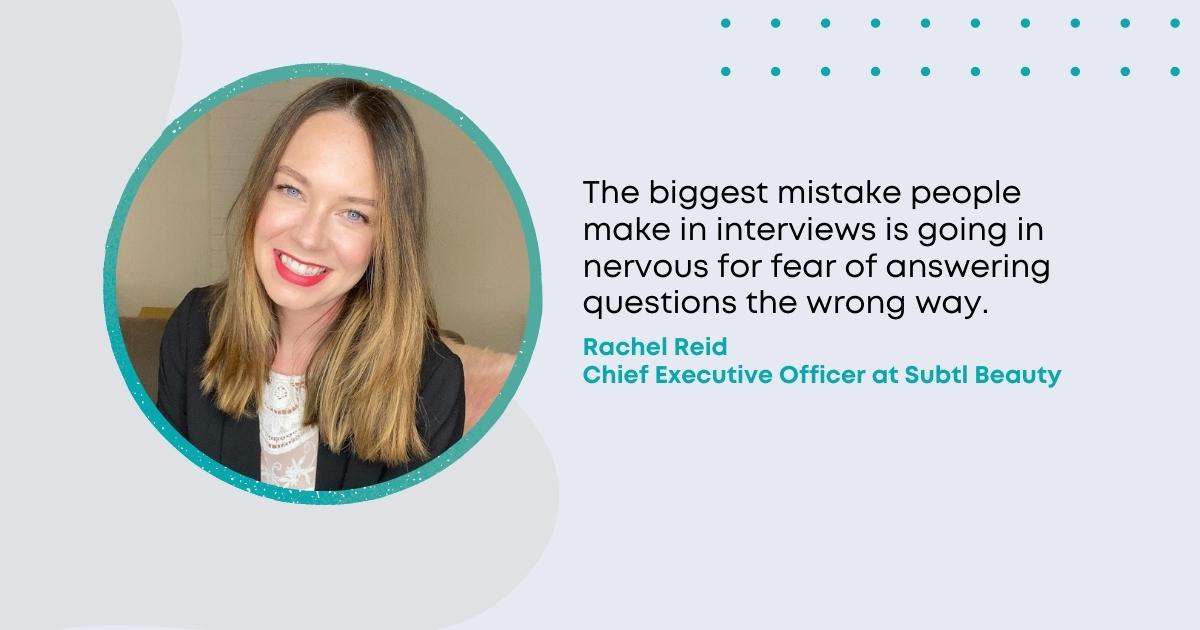What is one best way to answer the interview question “What kind of culture do you want to work in?”
To help you answer the interview question “What kind of culture do you want to work in?”, we asked recruiters and HR professionals for some of their insights on responses they’d like to hear from candidates. From keeping your response simple to addressing the company’s existing culture, there are several ways to answer this tough question that can help you nail your future interviews.
Here are nine professional answers to the question: “What kind of culture do you want to work in?”
- Keep your Response Simple
- Think Back on Previous Roles Where you Felt a Strong Fit
- Express a Desire to Learn & Develop your Skills
- Demonstrate a Support for an Inclusive Environment
- Strive for a Purpose-Driven Culture
- Express a Desire to be a Part of Innovation
- Be Specific About the Culture You Want
- Be Honest & Interview the Company
- Address the Company’s Existing Culture
Keep your Response Simple
While many interviewees scratch their heads after hearing this question and chaotically try to search for all those terms like “egalitarian” or “hierarchical culture”, you may stand out by keeping it simple:
“I don’t require any particular culture to work in as what defines a culture for me is the team itself. If the teams function properly and the collaboration between them is healthy and fruitful, then I certainly want to become a part of it.”
This reply may surprise and impress the interviewer because you’re not only pointing out that you’re not a needy person, but also because you let them know what has the most value for you and what you’re looking for in their company.
Arkadiusz Terpilowski, Primetric

Think Back on Previous Roles Where you Felt a Strong Fit
Think about the roles you’ve previously held where you felt like you were a strong fit. What made you feel like that puzzle piece just clicking into place? Did you work well with your manager? Did she create psychological safety with you and your team? Were your teammates inclusive and cared about you as a person? Were you given autonomy to make decisions or have enough oversight that you could learn in a supportive environment? Those things that worked well for you are the attributes to share when answering this question!
Steph McDonald, HubSpot
Express a Desire to Learn & Develop your Skills
Every organization expects its employees to constantly evolve and become better versions of themselves as time goes by. After all, only an evolving workforce can ensure growth and success for the company. Understandably, this is also the commitment and approach they expect from candidates they are looking to hire too. Therefore, the candidate should match these expectations by conveying how they wish to work in an environment that promotes learning and offers opportunities to develop one’s skills.
Konstantin Kuligin, K5 Mortgage

Demonstrate a Support for an Inclusive Environment
There are innumerable different answers to this question, but an inclusive work culture always encapsulates the best qualities of any work culture. When a work culture is inclusive, it’s more likely to support unique ideas and a diverse team, and consider all employees’ wants and needs. So, if you want to demonstrate your support for these aspects, saying you prefer an inclusive work culture is the right way to go.
Igal Rubinshtein, Home Essentials Direct
Strive for a Purpose-Driven Culture
This type of culture is built on shared values and common goals. From the partners to the employees and customers, every facet of this workplace is based on the aforementioned. If you are at an interview and answer with this, the interviewers are sure to note you as someone who has a strong inclination towards these and will likely place you in high regard.
Marc Roca, 4WD Life
Express a Desire to be a Part of Innovation
Whichever field you may work in, innovation is undoubtedly the key to moving forward and succeeding. If you work in a company that propagates an innovative culture, it’s likely that you’re going to come across individuals who are driven and creative. This type of work environment sharpens your skills in the right ways and fosters your ability to think creatively, all while making it an incredibly exciting experience.
Benoit Lacroix, Portmoni
Be Specific About the Culture You Want
Be as specific as possible about what culture means to you. Every workplace will have a different idea of what a good work-life balance is, how relationships between managers and junior staff should operate and what are reasonable expectations for advancement. Interviewers want to know if a candidate will make a good long-term fit, and if you’re vague about what you want they can’t assess that aspect. Talking in specifics about your goals and tying them to things you’ve researched about the company or role will demonstrate that you’re a serious applicant. Show your interviewer that you know how the culture you want compares to the culture you’re applying for.
Rachel Reid, Subtl Beauty

Be Honest & Interview the Company
The biggest mistake people make in interviews is going in nervous for fear of answering questions the wrong way. The best thing you can do to alleviate your nerves is to keep in mind that you are also “interviewing” your potential employer to make sure they are the right fit for you and what you are looking for in your career.
When asked what culture you want to work in, all you have to do is be honest about it. Before the interview, write down a list of things you are looking for in a potential work environment, and then communicate the things that matter to you most on that list during the interview.
Chris B., Minuteman Press International
Address the Company’s Existing Culture
When answering the question of what culture you would like to work in, it is worth considering the culture that the company already promotes. Thus, you make sure that the answer you give matches up with their values, ethics, and character. After all, your goal is to fit in, so position yourself as the ideal candidate who shares the company’s beliefs and way of conduct.
Verify the company’s culture and its characteristics. Then pick one or two factors that you like and can relate to. Choose something positive that actually constitutes value to you, for example, no hierarchy, informal approach, or support for innovation. Craft your answer based on one or two related aspects. Justify your choice by referring to your personality, talents, and experience. Make reference to the company’s values. Show that you will fit into the company’s culture and help strengthen its existing positive aspects.
Nina Paczka, Resume Now
Terkel creates community-driven content featuring expert insights. Sign up at terkel.io to answer questions and get published.






